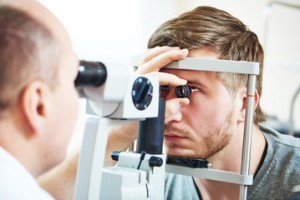Ring in 2017 with Regular Eye Exams
Sunday, January 15th, 2017, 3:13 am Losing weight, quitting smoking, spending less money. These are some of the most common New Year’s resolutions. While these definitely benefit your body (and your pocket book), there are other things you can commit to as you ring in the New Year that are just as good for you. How about caring for your eyes? We’re not talking about upping your carrot intake (though that may help); we’re talking about getting regular eye exams. This may not seem as important, but there are many things your eye doctor can detect in a routine eye exam, including:
Losing weight, quitting smoking, spending less money. These are some of the most common New Year’s resolutions. While these definitely benefit your body (and your pocket book), there are other things you can commit to as you ring in the New Year that are just as good for you. How about caring for your eyes? We’re not talking about upping your carrot intake (though that may help); we’re talking about getting regular eye exams. This may not seem as important, but there are many things your eye doctor can detect in a routine eye exam, including:
Eye disease
Some eye diseases don’t provide early warning signs, so by the time you notice a difference in your vision, it could be in its advanced stage. The following eye diseases can be detected with a routine eye exam:
- Glaucoma
- Diabetic retinopathy
- Age-related macular degeneration
- Cataracts
Changes in Vision
Your eye doctor can detect vision problems like nearsightedness, farsightedness and astigmatism during an eye exam. He or she can also detect amblyopia, a condition in which your eyes are misaligned or one eye needs more correction than the other. Focus is also something your doctor will assess, as well as strabismus (or crossed eyes) that can affect depth perception.
Health Problems
Regular eye exams can also detect medical problems that have nothing to do with your eyes, such as diabetes, high blood pressure, high cholesterol and certain cancers.
Resolve to Protect Your Vision This Year
Adults need a comprehensive eye exam every two years until age 60, after which annual exams are recommended. For more information about caring for your eyes, or to schedule an eye exam, please complete our convenient online contact form. For locations, click here to find a center near you.
Category: Eye Exam
